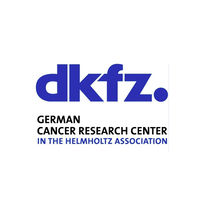预约演示
更新于:2025-05-07
PSMA x CD3
更新于:2025-05-07
关联
18
项与 PSMA x CD3 相关的药物作用机制 CD3调节剂 [+1] |
在研适应症 |
非在研适应症- |
最高研发阶段临床1/2期 |
首次获批国家/地区- |
首次获批日期1800-01-20 |
作用机制 CD3刺激剂 [+1] |
非在研适应症- |
最高研发阶段临床1/2期 |
首次获批国家/地区- |
首次获批日期1800-01-20 |
作用机制 CD3刺激剂 [+1] |
非在研适应症 |
最高研发阶段临床1期 |
首次获批国家/地区- |
首次获批日期1800-01-20 |
17
项与 PSMA x CD3 相关的临床试验CTIS2023-503495-24-00
- AMX-500-001
开始日期2024-01-29 |
申办/合作机构 |
NCT05997615
A Phase 1, First-in-human Study of the Safety, Pharmacokinetics, and Preliminary Efficacy of AMX-500 in Participants With Metastatic Castration-resistant Prostate Cancer (mCRPC)
The study will be conducted in 4 parts and will commence with dose escalation of AMX-500 as a monotherapy (Part 1), followed by monotherapy dose expansion (Part 2).
* Part 1 (Monotherapy Dose Escalation): Single-agent AMX-500 dose escalation
* Part 2 (Monotherapy Dose Expansion): Single-agent AMX-500 dose expansion
The study may subsequently continue via a protocol amendment with dose escalation of AMX-500 combinations (Part 3) followed by combination therapy dose expansion (Part 4).
* Part 1 (Monotherapy Dose Escalation): Single-agent AMX-500 dose escalation
* Part 2 (Monotherapy Dose Expansion): Single-agent AMX-500 dose expansion
The study may subsequently continue via a protocol amendment with dose escalation of AMX-500 combinations (Part 3) followed by combination therapy dose expansion (Part 4).
开始日期2023-08-10 |
申办/合作机构 |
NCT05441501
A Phase 1 Study of JNJ-80038114, a T-Cell Redirecting Agent Targeting Prostate Specific Membrane Antigen (PSMA), for Advanced Stage Prostate Cancer
The purpose of this study is to determine recommended phase 2 dose(s) (RP2Ds) of JNJ-80038114 in Part 1 (dose escalation) and to determine the safety at the RP2D(s) in Part 2 (dose expansion).
开始日期2022-11-15 |
100 项与 PSMA x CD3 相关的临床结果
登录后查看更多信息
100 项与 PSMA x CD3 相关的转化医学
登录后查看更多信息
0 项与 PSMA x CD3 相关的专利(医药)
登录后查看更多信息
35
项与 PSMA x CD3 相关的文献(医药)2025-03-01·Journal for ImmunoTherapy of Cancer
Leveraging T cell co-stimulation for enhanced therapeutic efficacy of trispecific antibodies targeting prostate cancer
Article
作者: Zhou, Linling ; Zhao, Jiaqi ; Bi, Jie ; Gu, Xinyu ; Pan, Liqiang ; Sun, Yanping
2024-10-01·International Journal of Surgical Pathology
Expression of PSMA in Tumor-Associated Vasculature Predicts Poorer Survival in Patients With Hepatocellular Carcinoma and Is Likely Associated With PD-L1
Article
作者: Hao, Yansheng ; Li, Rena X. ; Ettel, Mark
2024-04-15·Clinical Cancer Research
A Phase I Study of Acapatamab, a Half-life Extended, PSMA-Targeting Bispecific T-cell Engager for Metastatic Castration-Resistant Prostate Cancer
Article
作者: Penny, Hweixian Leong ; Matsubara, Nobuaki ; Horvath, Lisa G. ; Rettig, Matthew B. ; Uemura, Hiroji ; Bilen, Mehmet A. ; McComb, Mason ; Hu, Xuguang ; Janát-Amsbury, Margit M. ; Machiels, Jean-Pascal ; Dorff, Tanya ; Tran, Ben ; Eggert, Tobias ; Rottey, Sylvie ; Lolkema, Martijn P. ; Adra, Nabil ; Wong, Alvin ; Minocha, Mukul ; Tan, Daniel S.W. ; Bernard-Tessier, Alice ; Gupta, Vinita ; Kouros-Mehr, Hosein ; Greil, Richard ; Lemech, Charlotte ; Yu, Youfei ; Jurida, Gabor ; Meran, Johannes ; Autio, Karen
168
项与 PSMA x CD3 相关的新闻(医药)2025-05-01
·化学经纬
2025 年 AACR 年会上,NEW DRUGS ON THE HORIZON 系列报告特别披露了 12 种创新肿瘤药物,涵盖小分子和大分子。与往年一样,这系列特别会议让参会者首次了解到正在进入或在临床中取得进展的新型癌症治疗方法的分子结构和初步临床数据。这12种化合物中——包括几种高选择性抑制剂、1种分子胶降解剂、1 种双功能降解剂、1 种放射性药物、3 种双抗、1 种 RDC、和 1 种双抗ADC,其中有3款抑制剂均靶向KRAS。ND01 - AMG 410: GTP(on)/GDP(off) 双重活性的泛 KRAS 抑制剂利用对 KRAS G12Ci 的深入了解,基于结构设计了非共价“泛 KRAS”抑制剂 AMG 410,该抑制剂通过与已获批准的 KRAS G12C 抑制剂相同的变构口袋与 KRAS 突变体(G12D、G12V、G13D;IC50值 = 1-4 nM)结合。AMG410在KRAS突变细胞中显示出强大的抗增殖活性(中位 IC50= 12 nM)。重要的是,AMG 410对 KRAS 具有高度特异性,对 HRAS 和 NRAS 的选择性均超过 100 倍,AMG 410与泛 RAS 抑制剂的区别在于它能够避免在非KRAS转化细胞中产生抗增殖作用(中位 IC50>5 µM)。与仅有“ON”状态的抑制剂相比,AMG 410是双重 GTP(ON)和 GDP(OFF)状态抑制剂(KD(GDP)= 1 nM;KD(GTP)= 22 nM),能够以循环状态非依赖的方式阻断 KRAS 信号传导,同时还允许AMG 410阻断野生型KRAS 扩增肿瘤细胞的增殖。AMG 410 展现出强大的临床前疗效,在整个给药周期内显著降低磷酸化 ERK 水平,并在多种KRAS突变的结直肠癌、胰腺癌和肺癌细胞株异种移植瘤 (CDX) 和人源性异种移植瘤 (PDX) 模型中实现肿瘤停滞或消退。AMG 410 还表现出与其他靶向疗法或免疫疗法联合使用时增强的体内疗效和良好的临床前耐受性,凸显了 HRAS 和 NRAS 抑制剂在联合治疗中展现出更高疗效和解决临床耐药问题的潜力。基于良好的非临床安全性和有效性, AMG 410 将进行针对一系列实体瘤适应症的人体研究。ND02 - GDC-2992:一种异双功能雄激素受体 (AR) 拮抗剂和降解剂,用于治疗 AR 野生型和突变型前列腺癌前列腺癌是男性中第二大常见癌症,每 8 名男性中就有 1 名被诊断出患有前列腺癌。雄激素受体(AR)是一种激素激活的转录因子,可促进正常前列腺细胞的生长和存活,而 AR 信号传导是前列腺癌细胞增殖的关键驱动因素。抑制 AR 信号传导是目前前列腺癌治疗的主要手段,然而,患者通常会通过依赖 AR 信号传导的机制对这些疗法产生耐药性。GDC-2992(又名 RO7656594)是一种强效、可口服的异双功能分子,它通过连接 AR 和 E3 泛素连接酶 cereblon (CRBN)来抑制 AR 信号传导,从而导致 AR 泛素化并随后降解。GDC-2992 可在野生型 AR 和携带与标准治疗 AR 信号抑制剂(ARSI)耐药性相关的突变的 AR 蛋白的背景下抑制 AR 信号传导。与 ARSIs 不同,GDC-2992 未显示出对任何评估的 AR 变体具有激动作用的证据。体外实验中,GDC-2992 与 CRBN 配体泊马度胺联合治疗可阻止 GDC-2992 介导的 AR 降解,这支持了 CRBN 在 GDC-2992 介导的 AR 降解中的作用。然而,重要的是,即使降解减弱,GDC-2992 的抗增殖潜力依然存在,这表明 GDC-2992 的机制除了降解外,还包括竞争性 AR 拮抗作用。在体内实验中,GDC-2992 以剂量反应的方式降低循环 PSA 水平并抑制前列腺肿瘤生长。体外和体内临床前数据表明,GDC-2992 比标准治疗的 ARSIs 具有显著的进步。 一项正在进行的 I 期剂量递增和扩展研究将评估 GDC-2992 在既往接受过 AR 靶向治疗的晚期或转移性前列腺癌患者中的安全性、耐受性、药代动力学和初步抗肿瘤活性[NCT05800665]。ND03 - ABBV-969:用于治疗转移性去势抵抗性前列腺癌的首创双靶点 PSMA-STEAP1 药物偶联物前列腺癌是美国男性癌症死亡的第二大原因。目前尚无针对晚期前列腺癌的治愈疗法,因此迫切需要新型疗法。ABBV-969 旨在通过将细胞毒素递送至高表达前列腺肿瘤抗原 STEAP1和 PSMA的肿瘤细胞来满足这一关键需求。STEAP1 在正常组织中表达极低,但在超过 85% 的前列腺肿瘤中高度富集,并促进其增殖和侵袭。作为前列腺谱系标志物,PSMA 在肿瘤中的表达比健康前列腺组织高出 100 倍,并且与肿瘤分期、侵袭性和复发相关。前列腺癌中的高表达和高患病率表明这两种抗原是抗体药物偶联物 (ADC) 的理想靶点。由于肿瘤内及肿瘤间异质性表达可能限制疗效,我们采用双可变结构域免疫球蛋白 (DVD-Ig) 形式设计了一种可同时结合 STEAP1 和 PSMA 的双特异性抗体。该形式可实现两个靶点的二价结合,从而可能提高肿瘤覆盖率和治疗持久性。ABBV-969 是 DVD-Ig 与专有拓扑异构酶 1 (Top1) 抑制剂连接体药物的结合物,该药物与两种处于临床开发阶段的药物 ABBV-400(靶向 c-Met)和 ABBV-706(靶向 SEZ6)中使用的连接体药物相同。ABBV-969 与 STEAP1 和 PSMA 具有高亲和力结合,并且对表达其中一种或两种抗原的细胞具有细胞毒性。 ABBV-969 表现出良好的类药物特性、药代动力学和对去势抵抗性前列腺肿瘤患者异种移植瘤的疗效,并且比靶向 STEAP1 或 PSMA 的标准 ADC 具有更广泛的活性。此外,ABBV-969 在食蟹猴中耐受性良好,且具有与其他 Top1 抑制剂 ADC 常见的骨髓和胃肠道毒性。ABBV-969 目前正处于 1 期临床研究 (NCT06318273) 的剂量递增阶段。ND04 - ABP-102/CT-P72:新型四价 HER2 x CD3 T 细胞接合剂HER2 在乳腺癌、胃癌和其他癌症中过表达,在正常组织中表达有限。有效的 HER2 靶向治疗包括单克隆抗体、酪氨酸激酶抑制剂和抗体-药物偶联物。然而,耐药性仍然是一个问题。双特异性抗体 T 细胞结合剂 (TCE) 作为实体瘤的新型治疗方法具有尚未实现的潜力,过去在血液系统恶性肿瘤中取得了显著成功,并且最近 FDA 批准了tarlatamab 用于实体瘤治疗。先前开发 HER2 TCE 的尝试遇到了毒性问题。为了开发更安全的药物,这里设计了 ABP-102/CT-P72,这是一种新一代 HER2 x CD3 四价双特异性 (TetraBi) IgG1-[L]-scFv 形式的抗体,通过降低每个二价 HER2 结合臂的亲和力来降低对 HER2 低表达细胞的活性,从而选择性地对抗 HER2 过表达的肿瘤细胞。 ABP-102/CT-P72 经过精心设计,可降低 HER2 表达较低的正常组织中发生靶向、脱肿瘤毒性的可能性,其 IgG-[L]-scFv 形式具有功能性单价 CD3 结合,可促进 T 细胞参与。已经进行了 ABP-102 的体外活性以及体内疗效和安全性的临床前研究。 体外实验中 ,ABP-102/CT-P72 介导的 T 细胞活化、细胞毒性和细胞因子释放以 HER2 表达水平依赖的方式发生。 体内实验使用植入表达人类 HER2 细胞的异种移植肿瘤模型,然后应用人类 PBMC 进行。ABP-102/CT-P72 在 HER2 过表达模型(NCI-N87 和 BT-474)中表现出强效的肿瘤生长抑制作用,并在 HER2 低模型(HT55)中降低肿瘤生长抑制作用,这与预期一致。 在 HER2 过表达模型中,ABP-102/CT-P72 的肿瘤生长抑制率比 Runimotamab 的生物类似药(HER2 x CD3 TCE)高出两倍。ABP-102/CT-P72 在食蟹猴中也表现出良好的耐受性。ABP-102/CT-P72 的临床前研究证明了其强大的疗效和安全性,预计这将在即将开展的临床试验中扩大治疗窗口。 Abpro 和 CELLTRION, INC. 正在联合开发 ABP-102。ND05 - BMS-986449,一种高效、高选择性的IKZF2和 IKZF4 分子胶降解剂肿瘤微环境中调节性 T 细胞 (Treg) 的丰度与免疫疗法(例如纳武单抗)的疗效不佳相关。转录因子 IKZF2 和 IKZF4 在 Treg 细胞中大量表达,并参与了与该 T 细胞亚群相关的免疫抑制表型。IKZF2 和 IKZF4 的降解可能会使 Treg 细胞重新极化,使其趋向于抑制性较低、炎症性更强的表型,从而增强抗肿瘤效应 T 细胞应答。本报告介绍了 BMS-986449 的发现和表征,BMS-986449 是一种 IKZF2 和 IKZF4 的 C ereblon E 3 连接酶调节药物 (CELMoD™) 分子胶降解剂。 BMS-986449 是一种强效且口服生物可利用的 IKZF2/4 降解剂,经全蛋白组学评估,其对调节性 T 细胞中 IKZF1/3 水平的影响极小。BMS-986449 可在体外影响 Treg 细胞重编程,使其具有更接近效应细胞的表型,从而在同基因肿瘤模型中展现出良好的体内疗效。在食蟹猴中,口服 BMS-986449(0.3 mg/kg,每日一次)耐受性良好,并在 24 小时内维持循环 Treg 细胞中 Helios ≥80% 的降解率。鉴于这些临床前研究的积极成果和可接受的安全性,BMS-986449 已进入针对晚期实体瘤患者的 I/II 期临床试验。ND06 - RMC-5127,一种可口服、RAS (ON) G12V 选择性、非共价、三复合物抑制剂RAS G12V 突变是胰腺癌、结直肠癌和非小细胞肺癌中最常见的致癌驱动因素之一。在肿瘤细胞内,RAS G12V 主要处于活性 GTP 结合状态(“RAS(ON)”),导致下游致癌信号过度。RAS G12V 的固有 GTP 水解速率比 KRAS G12C 低约 12 倍,这使得细胞内 RAS G12V 库偏向于ON 状态,这凸显了靶向 RAS G12V(ON) 以最大程度抑制该致癌驱动因素的重要性。此外,迄今为止,使用传统的小分子实现对 RAS G12V 而非野生型 RAS 的选择性极具挑战性,因为 Val-12 残基既不适合共价抑制,也不适合形成极性非共价相互作用。RMC-5127 是一种强效、口服生物可利用、RAS(ON) G12V 选择性、非共价三复合物抑制剂。在 KRAS G12V 突变型癌细胞中,RMC-5127 与 KRAS G12V(ON) 和环丝氨酸蛋白酶 A (CypA) 形成三重复合物,通过空间位阻和 KRAS G12V(ON) 信号传导的消退,几乎立即破坏 RAS 效应子结合。RMC-5127 在体外抑制了多种 KRAS G12V 依赖型人癌细胞系中的 ERK 磷酸化和细胞生长,并且在小鼠 KRAS G12V 突变型癌症皮下异种移植模型中,单剂量 RMC-5127 可在体内诱导剂量依赖性、深度且持久的 RAS 通路激活抑制。在一组携带 KRAS G12V 的临床前 PDAC 和 NSCLC 模型中,RMC-5127 单药治疗在大多数模型中诱导了肿瘤消退,并且耐受性良好。 此外,在幼鼠的整个脑中观察到 RMC-5127 的剂量依赖性暴露,表明该化合物具有脑渗透性,并且 RMC-5127 在相关颅内 KRAS G12V 突变肿瘤异种移植模型中表现出显著的抗肿瘤活性,并在耐受性良好的剂量下观察到消退。ND07 - FXX489,一种特异性 FAP 靶向的放射性配体疗法FAP(成纤维细胞活化蛋白)在癌症相关成纤维细胞 (CAFs) 上表达,由于其在多种癌症中的潜力,成为放射配体疗法 (RLT) 中极具吸引力的靶点。β 射线的穿透特性据推测会引发 CAFs 与肿瘤细胞之间的“交叉火力效应”,从而导致 DNA 损伤和肿瘤细胞死亡。已知的 FAP 靶向配体在临床中表现出优异的肿瘤摄取选择性,但其肿瘤滞留时间较短,限制了其作为治疗手段的应用。本文描述了 FXX489(FAP 靶向配体),它可改善肿瘤滞留时间。FXX489 在相关动物模型( 例如 PDAC、NSCLC)中展现出 BiC 抗肿瘤功效的潜力,这些模型中的 FAP 表达于 CAFs,因此依赖于交叉火力机制。利用 mRNA 展示平台确定了多个起始点,并与 FAP 共结晶并评估其体内生物分布。选择肿瘤/肾脏比例最佳的系列进行进一步优化。优化基于共晶结构,重点在于最大限度地提高化合物的亲和力和蛋白水解稳定性。FXX489 与人和小鼠 FAP 的结合亲和力小于 10 pM;与其他蛋白酶(例如 DPP4)相比,表现出极佳的选择性;在血液和血浆中稳定。FXX489目前正在对胰腺导管腺癌 (PDAC)、非小细胞肺癌 (NSCLC)、乳腺癌和结直肠癌 (CRC) 患者进行 I 期临床评估 (NCT06562192)。ND08 - FAP-LTBR (RO7567132):双特异性基质免疫调节激动剂RO7567132 是一种新型双特异性抗体,可与淋巴毒素β受体(LTBR)双价结合,并与成纤维细胞活化蛋白(FAP)单价结合。LTBR 是肿瘤坏死因子受体超家族的成员,在包括基质细胞在内的多种细胞中表达。LTBR 与其配体结合后被激活,可上调参与吸引免疫细胞以及次级淋巴器官和高内皮微静脉(HEV)发育和维持的基因。FAP 在各种实体瘤中普遍存在,使其成为旨在在肿瘤基质内蓄积的药物的理想靶点。 RO7567132 通过靶向 FAP 将 LTBR 的激活特异性地限制在肿瘤微环境 (TME) 中,旨在调节肿瘤基质以诱导 HEV 分化,通过上调粘附分子和趋化因子来增加免疫细胞浸润,并诱导肿瘤部位特异性形成三级淋巴结构 (TLS),同时避免广泛的 LTBR 激活并最大程度地降低毒性。临床证据表明,在多种肿瘤适应症中,免疫浸润增加、TLS 的存在或 HEV 的存在与更好的预后和对癌症免疫疗法的更好反应相关。RO7567132 诱导内皮细胞表面粘附分子表达呈剂量依赖性和 FAP 依赖性增加,并增加体外诱导免疫细胞趋化因子的分泌。在临床前小鼠模型中,RO7567132 的鼠源替代物诱导肿瘤血管激活、分化为 HEV,并上调炎症和免疫通路,导致 T 细胞和 B 细胞向肿瘤的浸润增加,并升高血清 CXCL13 水平。在乳腺癌模型中,使用 RO7567132 的鼠源替代物治疗可抑制肿瘤生长,并且在乳腺癌和纤维肉瘤模型中与阿特珠单抗的鼠源替代物联合使用时均显示出更高的疗效。此外,在缓慢生长的原位小鼠结直肠癌模型中,使用 RO7567132 的鼠源替代物治疗可增加肿瘤中的免疫细胞(T 细胞和 B 细胞)和 HEV 的含量,并诱导类似于 TLS 的免疫细胞微环境的形成。RO7567132 在为期 2 周的非 GLP 最大耐受剂量/剂量范围探索 (MTD/DRF) 研究和为期 4 周的 GLP 毒理学研究中均表现出良好的耐受性,在食蟹猴中剂量高达 10 mg/kg,且未发现相关不良反应。RO7567132 目前正在进行一项开放标签、多中心、剂量递增、随机、1 期研究 (NCT06537310),以评估 RO7567132 作为单一药物以及与阿特珠单抗联合用于治疗晚期和/或转移性实体瘤患者的安全性、药代动力学、药效学和抗肿瘤活性。ND09 - BAY 3547926:针对肝细胞癌的新型靶向放射性核素治疗ND10 - GSK4418959 (IDE275): 一种新型、可逆的 WRN 解旋酶抑制剂 大规模全基因组水平的 CRISPR 筛选发现 WRN 解旋酶是一种有希望的 MSI-H 肿瘤合成致死靶点,且与肿瘤类型无关。这里描述了新型临床 WRN 解旋酶抑制剂 GSK4418959 (IDE275) 的发现,该抑制剂在体内和体外均重现了 WRN 基因抑制的 MSI-H 合成致死效应。GSK4418959 (IDE275) 与 WRN 解旋酶结构域中一个独特的变构位点结合,与 ATP 结合竞争并诱导一种与先前报道的 WRN 抑制剂不同的抑制构象。它选择性抑制 WRN 的 ATPase 和 DNA 解旋活性,但不抑制其他 RecQ 解旋酶家族成员,包括 BLM 解旋酶。GSK4418959 (IDE275) 在细胞中直接与 WRN 结合,以浓度依赖性方式选择性地在 MSI-H 癌细胞中诱导 DNA 损伤。 GSK4418959 (IDE275) 在多种肿瘤类型的 MSI-H 细胞系和患者来源的类器官中表现出强大的抗增殖作用,但在 MSS 模型中没有可测量的影响。 体内实验中 ,GSK4418959 (IDE275) 在几种携带不同致癌驱动基因和抑癌基因突变的 MSI-H CDX 和 PDX 模型中导致肿瘤消退并诱导 DDR 标志物,但不影响 MSS 模型。其中一个模型是来自一名患者的 MSI-H CRC PDX,该患者之前已接受过包括免疫检查点抑制剂 Nivolumab 在内的三种疗法治疗但均失败。由于其独特的结合模式,GSK4418959 (IDE275) 也在对其他已报道的 WRN 抑制剂治疗产生耐药性的 MSI-H CDX CRC 肿瘤模型中诱导了肿瘤消退。 这些研究结果证明了 GSK4418959 (IDE275) 对 MSI-H 癌症模型具有强效且选择性的临床前活性,表明其有望成为 MSI-H 癌症患者(包括现有疗法失败的患者)的一种有前景的临床治疗方案。ND11 - AZD0022:一种强效、可口服 KRASG12D 选择性抑制剂尽管近年来 RAS 靶向治疗取得了重大进展,但 KRAS G12D 癌症仍然是一项未满足的医疗需求。AZD0022 是一种强效、口服生物可利用高的 KRAS G12D 选择性可逆抑制剂,有望为 KRAS G12D 突变癌症患者带来治疗益处。 AZD0022 通过表面等离子体共振技术对活性型 KRAS G12D 蛋白 (KRAS G12D -GTP) 和非活性型 KRAS G12D 蛋白 (KRAS G12D -GDP) 均表现出高亲和力,且对野生型 KRAS 具有较高的选择性。AZD0022 在体内和体外实验中,对 KRAS G12D 结直肠癌 (CRC)、胰腺癌 (PDAC) 和非小细胞肺癌 (NSCLC) 模型中的生物标志物均表现出强效且浓度依赖性的抑制作用,并在这些适应症中抑制 KRAS G12D 肿瘤细胞的增殖和活力。AZD0022 对小鼠、大鼠和犬口服给药后,表现出显著的口服暴露量和较长的终末消除期半衰期。 AZD0022 每日口服治疗在 CRC、PDAC 和非小细胞肺癌 (NSCLC) CDX(细胞系来源异种移植)和 PDX(患者来源异种移植)模型中,结果显示 AZD0022 对 KRAS G12D 突变肿瘤类型均具有广泛的抗肿瘤活性。西妥昔单抗联合治疗进一步改善了 KRAS G12D CRC 和 PDAC 模型对 AZD0022 的疗效,两种肿瘤均观察到持续消退。AZD0022 目前正在 ALAFOSS-01(NCT06599502)研究中进行研究,这是一项针对 KRAS G12D 突变实体瘤患者的首次人体、开放标签、多中心、1/2a 期 AZD0022 研究。ND12 - M0324,一种新型 MUC-1 条件性 CD40 激动剂过去几十年来,抗 CD40 激动剂抗体已在临床试验中得到探索;然而,迄今为止,尚无任何一种获得批准。全身激活 CD40 可能导致肝毒性、输液相关反应、血小板减少症和细胞因子释放综合征等不良反应,从而限制了这些药物的治疗窗口。将 CD40 激活特异性靶向肿瘤微环境可以增强抗肿瘤活性,同时最大限度地降低全身毒性。MUC-1 是一种在各种癌症中普遍过表达的糖蛋白,在肿瘤进展和免疫逃逸中发挥关键作用。M0324 是一种新型 MUC-1 条件性 CD40 激动剂,由抗 MUC-1 IgG 和两个相同的骆驼重链可变结构域(VHH)结合 CD40 组成,旨在在 MUC-1 过表达的肿瘤细胞存在的情况下条件性激活免疫细胞。临床前体外研究表明,M0324 与 MUC-1 阳性肿瘤细胞相互作用时显著增强树突状细胞 (DC) 的活化,而当 MUC-1 表达细胞缺失时则无活性。与目前正在临床评估的抗 CD40 抗体相比,M0324 在树突状细胞肿瘤细胞共培养中表现出更优异的激活 IL-12p40 表达的能力。M0324 激活免疫细胞 CD40 的能力依赖于肿瘤细胞的 MUC-1 表达。单剂量、单药 M0324m 治疗在两种不同的免疫功能正常的小鼠肿瘤模型中均表现出强大的肿瘤清除效果(原位 Panc02-MUC-1 模型中 93% 的小鼠无瘤,MC38-MUC-1 模型中 100% 的小鼠无瘤)。CD40 的条件性激活仅在 MUC-1 存在的情况下发生,从而最大限度地减少了肿瘤外效应并提高了治疗指数。与 M0324m 相反,抗鼠 CD40 基准抗体导致小鼠体重减轻,并且边缘耐受剂量的抗鼠 CD40 无法控制肿瘤生长。综上所述,M0324 的条件性作用模式利用肿瘤中 MUC-1 的高表达来诱导靶向抗肿瘤免疫,有望克服传统 CD40 激动剂的安全局限性。临床前数据支持对 M0324 在 MUC-1 过表达肿瘤患者中进行临床研究。
免疫疗法AACR会议抗体药物偶联物临床结果
2025-04-17
·医药笔记
▎Armstrong2025年4月13日,多禧生物在Clinicaltrials.gov网站上注册了DXC008的一期临床试验。该一期临床试验计划入组110例前列腺癌、骨尤文肉瘤等实体瘤患者,预计20230年完成。DXC008为多禧生物首款双靶点ADC新药,同时靶向STEAP1和PSMA。总结PSMA为前列腺癌重要靶点,诺华PSMA核药已经获批上市,多款PSMA/CD3双抗在临床阶段。STEAP1同样为前列腺癌重要靶点,安进STEAP1/CD3双抗在初步临床中表现出优异疗效,并已经启动三期临床试验。DXC008为全球首款STEAP1/PSMA双靶点ADC新药。Armstrong技术全梳理系列GPRC5D靶点全梳理;CD40靶点全梳理;CD47靶点全梳理;补体靶向药物技术全梳理;补体药物:眼科治疗的重要方向;Claudin 6靶点全梳理;Claudin 18.2靶点全梳理;靶点冷暖,行业自知;中国大分子新药研发格局;被炮轰的“me too”;佐剂百年史;胰岛素百年传奇;CUSBEA:风雨四十载;中国新药研发的焦虑;中国生物医药企业的研发竞争;中国双抗竞争格局;中国ADC竞争格局;中国双抗技术全梳理;中国ADC技术全梳理;Ambrx技术全梳理;Vir Biotech技术全梳理;Immune-Onc技术全梳理;亘喜生物技术全梳理;康哲药业技术全梳理;科济药业技术全梳理;恺佧生物技术全梳理;同宜医药技术全梳理;百奥赛图技术全梳理;腾盛博药技术全梳理;创胜集团技术全梳理;永泰生物技术全梳理;中国抗体技术全梳理;德琪医药技术全梳理;德琪医药技术全梳理2.0;和铂医药技术全梳理;荣昌生物技术全梳理;再鼎医药技术全梳理;药明生物技术全梳理;恒瑞医药技术全梳理;豪森药业技术全梳理;正大天晴技术全梳理;吉凯基因技术全梳理;基石药业技术全梳理;百济神州技术全梳理;百济神州技术全梳理第2版;信达生物技术全梳理;信达生物技术全梳理第2版;中山康方技术全梳理;复宏汉霖技术全梳理;先声药业技术全梳理;君实生物技术全梳理;嘉和生物技术全梳理;志道生物技术全梳理;道尔生物技术全梳理;尚健生物技术全梳理;康宁杰瑞技术全梳理;科望医药技术全梳理;科望医药技术全梳理2.0;岸迈生物技术全梳理;礼进生物技术全梳理;康桥资本技术全梳理;余国良的抗体药布局;荃信生物技术全梳理;安源医药技术全梳理;三生国健技术全梳理;仁会生物技术全梳理;乐普生物技术全梳理;同润生物技术全梳理;宜明昂科技术全梳理;派格生物技术全梳理;迈威生物技术全梳理;Momenta技术全梳理;NGM技术全梳理;普米斯生物技术全梳理;普米斯生物技术全梳理2.0;三叶草生物技术全梳理;贝达药业抗体药全梳理;泽璟制药抗体药全梳理;恒瑞医药抗体药全梳理;齐鲁制药抗体药全梳理;石药集团抗体药全梳理;豪森药业抗体药全梳理;华海药业抗体药全梳理;科伦药业抗体药全梳理;百奥泰技术全梳理;凡恩世技术全梳理。
抗体药物偶联物临床1期临床3期申请上市临床2期
2025-04-07
·药智网
过去十年间,非小细胞肺癌(NSCLC)一直是抗癌新药研发的“绝对主角”,在近十年上市抗肿瘤新药中,28.57%的适应症均为非小细胞肺癌,这相当于每三个肿瘤新药中就有一个是非小细胞肺癌。然而,随着非小细胞肺癌等大肿瘤适应症的市场集中度越来越高,其市场竞争也愈发激烈,越来越多Biotech不得不摒弃原有格局,选择以小品种肿瘤适应症来验证成药性,肿瘤新药的研发格局正在悄然发生改变。六大原因从“肺癌独大”到“前列腺癌崛起”非小细胞肺癌之所以能长期占据抗癌新药研发的“C位”,其原因无外乎其高发病率、愈发明确的致病机制、逐渐清晰的驱动基因突变、庞大的未满足临床需求以及其患者强大的支付意愿。而从“肺癌独大”到“前列腺癌崛起”,其背后似乎也有着同样的底层逻辑:原因1:发病率、死亡率陡增首先需要明确一点,在全球老龄化加剧的重大趋势下,前列腺癌作为泌尿男性生殖系统最常见的恶性肿瘤之一,无论是发病率还是死亡率均在逐年增长。在发病率方面,过去30年里65岁以上男性发病率增长近3倍,而在柳叶刀最新前列腺癌重大报告还提到,全球前列腺癌新发病例数将从2020年的140万例增加到2040年的290万例,患病人数还将继续翻倍。而在中国2022年恶性肿瘤发病统计结果中,中国男性前列腺癌发病率为13.4/10万,位居男性恶性肿瘤的第6位,趋势与全球层面基本一致。在死亡率方面,到2040年预计全球死于前列腺癌的人数将从2020年的37.5万增长至70万,增幅高达85%,而中国内地前列腺死亡率为4.8/10 万,位居男性恶性肿瘤的第7位。更关键的是,据国家癌症中心去年发布的《2022年中国恶性肿瘤疾病负担情况》表示,在食管癌、胃癌、肝癌等众多肿瘤发病率逐年下降趋势之下,前列腺癌的发病率增速逐年上涨,在恶性肿瘤中仅次于甲状腺癌,远超肺癌。原因2:需求端倒逼新药研发前列腺作为雄激素依赖性器官,其生长发育与雄激素受体(AR)信号通路密切相关。早期前列腺癌通过手术、放疗、雄激素剥夺疗法(ADT)等方式可得到有效治疗,但由于前列腺癌早期临床症状通常不明显,因此大多数患者确诊时已是中晚期,这就导致临床手术的实际适配度并不高,反而是药物治疗成为了首选。同时,对晚期患者而言,药物治疗更大的问题其实在于,治疗后病情通常会出现去势抵抗,演变为转移性去势抵抗性前列腺癌(mCRPC),通常情况下,此阶段的患者治疗方式匮乏(中位生存期仅12个月左右)。因此,在迫切临床需求与强大支付意愿之下,开发能提高此类患者的生存率与生活质量的药品,倒逼着创新药企业从中发力。原因3:技术可行性突破前列腺癌的分子分型逐渐清晰(如HRR基因突变、微卫星不稳定等),为靶向药和免疫疗法提供突破口。原因4:政策红利释放FDA对“突破性疗法”的加速审批通道、孤儿药资格认定,一定程度上降低了mCRPC等小品种肿瘤适应症的研发风险,理论上可以更快上市。原因5:肺癌赛道内卷一般而言,药企的研发意愿与其对应的市场规模成正比,这就意味着,理论上抗癌药一定比抗感染药更火,有着强大患者基数的小细胞肺癌一定更受欢迎。但随着大量新药涌入非小细胞肺癌,领域开始陷入内卷,以至于部分小型Biotech耗尽心血研发的新药,甚至连上市的门槛都很难跨过,更别提上市之后的商业化。因此,越来越多Biotech企业不得不尝试弯道超车,即用小品种适应症验证成药性,然后辐射至更大市场适应症,前列腺癌正是选择之一。原因6:免疫治疗劣势虽然近十年里免疫治疗几乎改变了整个肿瘤的治疗格局,但免疫抑制剂也并非万能,前列腺癌由于激素依赖性、低肿瘤突变负荷和免疫抑制微环境等特性,成功触及了免疫疗法的“非舒适区”。2020年的美国癌症研究协会(AACR)线上会议上,阿替利珠单抗联合恩扎卢胺的临床结果公布,未能给转移性去势抵抗性前列腺癌(mCRPC)患者带来任何生存获益,仅在次要终点层面,实现了OS率略优等结果。另一方面,PD-1单药在CRPC中应答不佳,ORR约5%,即使在PD-L1阳性患者中也仅有17%。当下主流的新药类型“有心无力”,临床上又存在强大需求,领域竞争者还不多,这样的适应症,对于新药企业的吸引力能不强吗?加速重构前列腺癌新药格局“迎变”自1941年雄激素剥夺治疗(ADT)成为转移性前列腺癌的标准治疗以来,前列腺癌的临床已历经80余年。而整个发展不仅经历了从传统内分泌治疗向精准靶向的显著转变,期间更可分为共有三个阶段的六个重要事件节点:治疗早期,临床上多以雄激素剥夺治疗(ADT)为核心,通过抑制激素活性控制疾病进展。治疗中期,随着对耐药机制的深入,化疗药物(如多西他赛)和新型内分泌药物(如阿比特龙)相继应用于去势抵抗阶段,延长了患者生存期。期间更是诞生了一系列新型AR与PARP抑制剂。治疗后期,RDC的技术突破成为关键转折,“精准定位+辐射杀伤”实现了对转移病灶的定向清除,也是从“系统性”到“局部精准”的升级,标志着前列腺癌治疗进入多模态联合、分子靶向与放射治疗深度融合的新时代。数据来源:公开数据整理经历过去几年全球医药产业的积极布局,前列腺癌在研新药药物数量迅速增长,药智数据显示,全球前列腺癌领域在研新药数量约856个(包括已上市产品的适应症扩展),其中活跃管线约344个,占比约40%;活跃临床阶段管线242个,占比约28%。靶点方面,前列腺新药主要集中于PSMA(FOLH1)、AR、GnRH receptor等靶点。图:全球前列腺癌上市/在研药物数量和靶点(非适应症产品数量)图片来源:药智数据而在新药技术领域分布层面,242个在研活跃前列腺癌管线中,除化疗药物、疫苗与未知小分子抑制剂外,排名前十的技术领域分别是核药(包含RDC)、单抗、ADC、双抗、PARP抑制剂、酪氨酸激酶抑制剂、AR抑制剂、CAR-T、EZH2抑制剂、PROTAC与CYP11A1抑制剂。数据来源:药智数据数量上看,核药是当下前列腺癌新药研发中的绝对热门,尤其近年来迅速走红的RDC领域;其次,单抗、ADC与双抗等免疫疗法虽然治疗局限性大,临床推进困难,但其研发热度仍是仅次于核药的存在;之后如新型PARP抑制剂、AR抑制剂等小分子靶向技术方向在前列腺癌新药研发中也有一席之地;最后,CAR-T与PROTAC等近几年才出现的疗法,其同样拥有不俗的数量。而结合技术领域特点与数量分布情况,当下前列腺癌研发方向可主要分为四者:① 核药:前列腺癌毫无疑问的热门领域,尤其是万物皆可偶联的趋势下迅速发展的RDC领域。② 免疫疗法:包括单抗、ADC与双抗,虽其在前列腺癌的有效性不具优势,但耐不住这个领域在其他肿瘤方向火啊。③ 靶向制剂:以PARP抑制剂、酪氨酸激酶抑制剂、AR抑制剂、EZH2抑制剂为主要的新一代前列腺癌疗法,这个领域也是目前除核药外最被看好的领域之一。④ 其他:包含CAR-T、PROTAC以及未上榜的其他创新疗法,虽其数量不多,但也具备一定的优势。核药(RDC)前列腺新药最集中领域关于核药的应用,人类已拥有了近百年的经验,而随着靶向性问题的解决,RDC成为现阶段核药应用中最受期待的细分领域。所谓RDC,即利用抗体或小分子介导特异性靶向作用,将放射性核素递送至靶位置,从而将放射性同位素产生的放射线集中作用于组织局部,在高效精准治疗的同时降低全身暴露对其他组织造成的损伤。RDC之所以能在前列腺癌中发展迅速,其主要原因有二:一者,众多疗法在前列腺癌的有效性上“有心无力”,而RDC的定向杀伤作用却不受限制,在前列腺癌中表现出优异的疗效;二者RDC无需依赖细胞内的代谢途径,很大程度上可克服常规药物治疗的耐药性。截至目前,全球共有23款临床活跃管线在研(除上市),其中临床Ⅲ期管线共有三款,临床Ⅱ期的管线共有7款,临床I期的管线共有8款。其中诺华的225Ac-PSMA-617、礼来的Lu-177-PSMA-I&T与阿斯利康的FPI-2265是目前最受期待的三款RDC。适应症阶段药品名称技术类型原研单位管线状态(全球)管线阶段(中国)临床Ⅲ期225Ac-PSMA-617RDCAdvanced Accelerator Applications SA临床Ⅲ期临床Ⅲ期Lu-177-PSMA-I&TRDCCurium;慕尼黑工业大学临床Ⅲ期临床Ⅲ期FPI-2265RDCFusion Pharmaceuticals;RadioMedix Inc临床Ⅲ期临床Ⅲ期临床Ⅱ期177Lu-LNC1011RDC烟台蓝纳成临床Ⅱ期临床Ⅱ期HRS-4357RDC江苏恒瑞医药股份有限公司临床Ⅱ期临床Ⅱ期225Ac-J591RDCConvergent Therapeutics Inc;康奈尔大学临床Ⅱ期临床Ⅲ期67Cu-SAR-bisPSMARDCClarity Pharmaceuticals Pty Ltd临床Ⅱ期临床Ⅲ期[225Ac]Ac-PSMA-R2RDC诺华临床Ⅱ期临床Ⅲ期JH-02RDC晶核生物医药科技(南京)有限公司临床Ⅱ期临床Ⅱ期64Cu-SAR-BBNRDCClarity Pharmaceuticals Pty Ltd临床Ⅱ期临床Ⅲ期临床Ⅰ期[225Ac]-AZD-2284RDC阿斯利康临床Ⅰ期临床Ⅲ期BAY-3546828RDC拜耳临床Ⅰ期临床Ⅲ期18F-OncoACP3RDCPhilogen SpA临床Ⅰ期临床Ⅲ期[177Lu]Lu-BQ7876RDCTomsk National Research Medical Center of the Russian Academy of Sciences临床Ⅰ期临床Ⅲ期225Ac-FL-020RDC上海辐联医药科技有限公司临床Ⅰ期临床Ⅲ期161Tb-SibuDABRDC巴塞尔大学医院临床Ⅰ期临床Ⅲ期TLX-592RDCTelix Pharmaceuticals Ltd临床Ⅰ期临床Ⅲ期177Lu-PSMA-EB-01RDC北京协和医院临床Ⅰ期临床Ⅰ期数据来源:药智数据诺华的[225Ac]Ac-PSMA-617(AAA817)注射液作为目前在研RDC中进展最快的管线,靶向PSMA这个前列腺癌优势靶点,核素选择上使用了Ac-225(α发射器),与Lutetium-177等β发射器相比,具有更高的功效和更少的副作用(短程高能粒子特性)。在其一项终末期转移性去势抵抗性前列腺癌患者的长期生存临床研究中,91%的患者PSA有所下降,其中67.8%的患者下降幅度达到或超过50%。中位随访时间为22个月(6-59个月),68%的患者出现影像学疾病进展,中位OS为15个月,中位rPFS 为9个月。而除了AAA817等临床后期管线外,部分临床阶段前期的管线同样在临床中展现出不俗的实力,比如2025年被FDA授予快速通道的67Cu-SAR-bisPSMA,其认证的关键数据中显示:在所有剂量递增队列中,73%的可评估患者,PSA水平出现下降。在接受治疗的患者中,45%的患者PSA下降超过50%,其中部分患者仅接受了1次67Cu-SAR-bisPSMA的4、8或12GBq剂量。在2、3和4组队列中,患者分别接受了8GBq单次剂量、12GBq单次剂量和12GBq多次剂量的67Cu-SAR-bisPSMA治疗。在这些队列中,约75%的患者PSA下降超过35%,近一半的患者PSA下降至少80%。仍有希望前列腺癌不再是“免疫沙漠”一直以来,前列腺癌都被认为是“免疫沙漠”,其特殊的肿瘤微环境决定了免疫疗法很难起效,但好在对于有反应的前列腺癌患者通常表现出较持久的缓解,这就表示免疫治疗在前列腺癌领域或许仍有希望。多年实践以来,“缺乏有效的生物标志物”被认为是阻碍免疫疗法治疗前列腺癌的主要原因之一,因此,寻找更加有效的前列腺癌相关免疫标志物成为了其目前着重发力的点。并且(抗雄,化疗,PARP抑制剂,镭-223等)的组合疗法也为免疫疗法在前列腺癌领域发光提供了新的希望,也提示我们未来或当以更为开放的眼光设计联合用药方案,以促使前列腺癌从“冷”到“热”的转变。目前免疫治疗用于前列腺癌治疗的临床管线数量仅次于核药,全球共有52款活跃免疫疗法处于临床阶段,其中单抗疗法21款,双抗疗法15款,ADC疗法16款。对于单抗活跃管线,目前已有包括帕博利珠单抗、纳武利尤单抗在内的5款疗法进入了临床Ⅲ期阶段,其余管线则尚处于临床Ⅱ期及之前。技术类型药品名称靶点原研单位管线状态(全球)管线阶段(中国)适应症阶段单抗帕博利珠单抗 PembrolizumabPD-1默沙东批准上市批准上市临床Ⅲ期伊匹木单抗 IpilimumabCTLA4Medarex Inc;百时美施贵宝批准上市批准上市临床Ⅲ期纳武利尤单抗 NivolumabPD-1Medarex Inc;小野药品工业株式会社;百时美施贵宝批准上市批准上市临床Ⅲ期阿替利珠单抗 AtezolizumabPD-L1罗氏批准上市批准上市临床Ⅲ期TLX-591FOLH1Telix Pharmaceuticals Ltd临床Ⅲ期暂无临床Ⅲ期阿得贝利单抗 AdebrelimabPD-L1江苏恒瑞医药股份有限公司批准上市批准上市临床Ⅱ期替雷利珠单抗 TislelizumabPD-1百济神州(上海)生物科技有限公司合作(诺华)批准上市批准上市临床Ⅱ期DKN-01DKK1Leap Therapeutics Inc;礼来百济神州(合作)临床Ⅱ期暂无临床Ⅱ期艾萨妥昔单抗 IsatuximabCD38ImmunoGen Inc赛诺菲(合作)批准上市批准上市临床Ⅱ期GotistobartCTLA4BioNTech SE;昂科免疫;药明生物技术有限公司临床Ⅲ期临床Ⅲ期临床Ⅱ期ENV-105CD105Kairos Pharma Ltd临床Ⅱ期暂无临床Ⅱ期依洛尤单抗 EvolocumabPCSK9安斯泰来制药;安进批准上市批准上市临床Ⅱ期帕博利珠单抗;维博利单抗 Pembrolizumab;VibostolimabPD-1;TIGIT默沙东临床Ⅲ期临床Ⅲ期临床Ⅱ期2141-V11CD40洛克菲勒大学临床Ⅱ期暂无临床Ⅱ期REGN-5678CD28;FOLH1再生元制药临床Ⅱ期暂无临床Ⅱ期依布妥组单抗 EnoblituzumabCD276MacroGenics Inc天境生物(合作)临床Ⅱ期临床申请临床Ⅱ期HMBD-001ERBB3Hummingbird Bioscience Ltd临床Ⅱ期暂无临床Ⅱ期帕妥珠单抗 PertuzumabHER2美国基因泰克有限公司批准上市批准上市临床Ⅱ期BMS-986218CTLA4百时美施贵宝临床Ⅱ期暂无临床Ⅱ期数据来源:药智数据对于双抗活跃管线,目前仅有安进(Xencor、百济神州)的AMG-509进入了临床Ⅲ期,其余管线则处于临床Ⅱ期及之前。技术类型药品名称靶点原研单位管线状态(全球)管线阶段(中国)适应症阶段双/多抗AMG-509CD3;STEAP1Xencor Inc;安进;百济神州临床Ⅲ期临床Ⅰ期临床Ⅲ期PT-217CD47;DLL3Phanes Therapeutics临床Ⅱ期临床Ⅰ期临床Ⅱ期MGD-019CTLA4;PD-1MacroGenics Inc临床Ⅱ期暂无临床Ⅱ期AMX-500CD3;FOLH1Amunix Inc;Vir Biotechnology Inc;赛诺菲临床Ⅱ期暂无临床Ⅱ期沃达利单抗 VudalimabCTLA4;PD-1MD安德森癌症中心;Xencor Inc临床Ⅱ期暂无临床Ⅱ期LAVA-1207FOLH1Lava Therapeutics BV临床Ⅱ期暂无临床Ⅱ期数据来源:药智数据对于ADC活跃管线,目前尚无任何一款新药进入临床Ⅲ期,但临床Ⅱ期管线数量较多,已有11款新药处于该阶段,并且其中含有不少中国Biotech企业。技术类型药品名称靶点原研单位管线状态(全球)管线阶段(中国)适应症阶段ADC德达博妥单抗 Datopotamab deruxtecanTACSTD2;Topo I第一三共制药;阿斯利康批准上市注册申请临床Ⅱ期戈沙妥珠单抗 Sacituzumab govitecanTACSTD2Immunomedics Inc云顶新耀医药科技有限公司(合作)批准上市批准上市临床Ⅱ期维替索妥人单抗 Tisotumab vedotinCD142;TubulinGenmab A/S;Seagen Inc;再鼎医药(上海)有限公司(合作)批准上市注册申请临床Ⅱ期HS-20093CD276上海翰森生物医药科技有限公司葛兰素史克(合作)临床Ⅲ期临床Ⅲ期临床Ⅱ期德伊菲妥单抗 Ifinatamab deruxtecanCD276;Topo I第一三共制药;默沙东临床Ⅲ期临床Ⅲ期临床Ⅱ期维恩妥人单抗 Enfortumab vedotinNECTIN4Seagen Inc;安斯泰来制药批准上市批准上市临床Ⅱ期FOR46CD46;Tubulin加利福尼亚大学旧金山分校临床Ⅱ期暂无临床Ⅱ期YL-201CD276苏州宜联生物医药有限公司临床Ⅲ期临床Ⅲ期临床Ⅱ期纬迪西妥单抗 Disitamab vedotinHER2荣昌生物制药(烟台)股份有限公司批准上市批准上市临床Ⅱ期维汀-拉迪妥单抗 ladiratuzumab vedotinSLC39A6;TUBA3C;TUBB1;TUBB2Seagen Inc;默沙东临床Ⅱ期暂无临床Ⅱ期度嗪沃瑞妥单抗 Vobramitamab duocarmazineCD276MacroGenics Inc临床Ⅱ期暂无临床Ⅱ期PDS0301IL-12PDS Biotechnology Corp临床Ⅱ期暂无临床Ⅱ期数据来源:药智数据当然,免疫治疗在前列腺领域的研发困难肯定不少,其推进也很难在短期内取得较好的反馈。比如2023年1月,默沙东官方宣布,帕博利珠单抗联合恩扎鲁胺和雄激素剥夺疗法(ADT)治疗转移性激素敏感性前列腺癌的一项Ⅲ期临床试验(KEYNOTE-991)就因为无效而停止,而此次临床试验的失败意味着帕博利珠单抗在不到一年的时间内第三次在前列腺癌领域失败。不过,部分双抗与ADC产品在该领域的表现却相对更好,比如2024年11月安进注册了STEAP1/CD3双抗Xaluritamib(AMG 509)治疗转移性去势抵抗前列腺癌的三期临床试验;MGC018虽然在不良事件上折戟,但其单药在治疗mCRPC患者时,显示出了不错的抗肿瘤活性,其(3mg/kg,Q3W)剂量组的ORR达25%。故整体而言,免疫治疗在前列腺癌治疗方面纵然困难重重,却也有不少值得期待的地方,毕竟作为现阶段全球新药研发的主力方向之一,全肿瘤制霸始终还是最终结局。经久不衰新一代靶向制剂登场小分子靶向抑制剂作为前列腺癌多年以来的主力疗法,在经历多年技术更迭之后,如今的技术分类已呈现出多样化构成。整体上来看,前列腺癌小分子靶向在研管线主要由几大类构成,分别是PARP抑制剂、AR抑制剂、EZH2抑制剂、GnRHR拮抗剂、GnRHR激动剂与雄激素合成抑制剂等,其中PARP抑制剂、AR抑制剂的占比数量最多。图片来源:药智网新型PARP抑制剂其实,既往PARP抑制剂多用于卵巢癌、乳腺癌等治疗领域,但随着DNA损伤修复机制与PARP抑制剂的作用关系研究深入,其应用与前列腺癌的想象空间也得以被逐步实现,越来越多的研究结果证实了PARP抑制剂在前列腺癌中的治疗效果。2015年《新英格兰医学杂志》发表的TOPARP-A研究结果首次显示了PARP抑制剂在前列腺癌中的抗肿瘤活性,随后TRITON2研究、GALAHAD研究及TOPARP-B研究等多项Ⅱ期临床试验相继发现携带DNA修复基因胚系和/或体系突变的mCRPC患者对PARP抑制剂敏感,其中绝大多数为HRR基因突变。药品名称技术类型靶点原研单位管线状态(全球)管线阶段(中国)适应症阶段SaruparibPARP抑制剂PARP-1阿斯利康临床Ⅲ期临床Ⅲ期临床Ⅲ期氟唑帕利 FuzuloparibPARP抑制剂PARP江苏恒瑞医药股份有限公司;江苏豪森药业集团有限公司批准上市批准上市临床Ⅲ期HWH-340PARP抑制剂PARP人福医药集团股份公司临床Ⅱ期临床Ⅱ期临床Ⅱ期塞纳帕利 SenaparibPARP抑制剂PARP-1;PARP2上海君实生物医药科技股份有限公司;南京英派药业有限公司批准上市批准上市临床Ⅱ期甲苯磺酸尼拉帕利 Niraparib TosylatePARP抑制剂PARPTESARO Inc;默沙东再鼎医药(上海)有限公司;强生;武田批准上市批准上市临床Ⅱ期TSL-1502PARP抑制剂PARP-1;PARP2Tasly Pharmaceuticals Inc临床Ⅱ期临床Ⅱ期临床Ⅱ期Mefuparib HydrochloridePARP抑制剂PARP-1中国科学院上海药物研究所;辰欣药业股份有限公司临床Ⅱ期临床Ⅱ期临床Ⅱ期帕米帕利 PamiparibPARP抑制剂PARP百济神州;默克雪兰诺有限公司批准上市批准上市临床Ⅱ期IMP-1734PARP抑制剂PARP-1上海瑛派药业有限公司Eikon Therapeutics Inc临床Ⅱ期临床Ⅱ期临床Ⅰ期HS-10502PARP抑制剂PARP-1江苏豪森药业集团有限公司临床Ⅰ期临床Ⅰ期临床Ⅰ期KBP-2205PARP抑制剂PARP凯复(苏州)生物医药有限公司临床Ⅰ期临床Ⅰ期临床Ⅰ期数据来源:药智数据截至目前,全球共有11款用于前列腺癌的PARP抑制剂活跃管线在研,其中阿斯利康的Saruparib与恒瑞医药的氟唑帕利是目前仅有的两款前列腺癌适应症Ⅲ期管线;剩下绝大多数管线则均处于临床Ⅱ期或临床I期。同时,值得注意的是,目前PARP抑制剂靶向制剂的研发方向不再是以往的单药治疗,更多的还是选择与其他制剂进行联合。比如:强生的“甲苯磺酸尼拉帕利”与醋酸阿比特龙联用,并结合泼尼松治疗mCRPC,可以精准靶向患者的雄激素受体与BRCA1/2突变两大致癌驱动因素。其临床结果显示,疗法能显著延长携带BRCA1/2突变的mCRPC患者的影像学无进展生存期(rPFS)。辉瑞Talzenna联合恩扎卢胺治疗具有HRR(同源重组修复)基因突变的转移性去势抵抗性前列腺癌(mCRPC)成人患者,在其关键Ⅲ期研究TALAPRO-2中,HRR突变队列的研究结果显示,甲苯磺酸他拉唑帕利联合恩扎卢胺相比对照组疗效显著:①降低55%的疾病进展或死亡风险;②完全缓解率(CR)高达38.4%(对照组为18.5%);③客观缓解率(ORR)达67.1%(对照组为40%)。新型AR抑制剂自20世纪60年代AR信号通路靶向治疗问世以来,ARi通过竞争AR结合点来拮抗其主要内源性配体—睾酮和二氢睾酮对AR的激活,对于前列腺癌的治疗作用显著。第一代AR抑制剂(如醋酸环丙孕酮)虽证实了AR阻断策略在前列腺癌临床治疗中的有效性,极具开拓意义,但却因AR亲和力弱(阻断作用有限)且易产生耐药性等多种原因,使其临床应用显著受限。而如今新型AR抑制剂,从多个阶段抑制雄激素信号以及AR受体的激活,包括竞争性抑制雄激素与AR的结合,阻止AR的核转位以及抑制AR与DNA的结合和AR介导的基因转录。其对AR的特异性和亲和力较上一代ARi更强,提供了更有效的雄激素阻断作用,上市后研究及临床实践中也极少发生抗雄激素撤除综合征。药品名称技术类型原研单位管线状态(全球)管线阶段(中国)适应症阶段氘恩扎鲁胺 DeutenzalutamideAR抑制剂海创药业股份有限公司普克药业(合作)注册申请注册申请注册申请CC-94676AR抑制剂新基公司;百时美施贵宝临床Ⅲ期临床Ⅲ期临床Ⅲ期普克鲁胺 ProxalutamideAR抑制剂中国药科大学;苏州开拓药业股份有限公司Applied Biology(合作)批准上市临床Ⅲ期临床Ⅲ期HRS-5041PROTAC/AR抑制剂成都盛迪医药有限公司;江苏恒瑞医药股份有限公司临床Ⅱ期临床Ⅱ期临床Ⅱ期ONCT-534AR抑制剂Oncternal Therapeutics Inc临床Ⅱ期暂无临床Ⅱ期盐酸普萘洛尔 Propranolol hydrochlorideAR抑制剂Wyeth Pharmaceuticals Inc批准上市暂无临床Ⅱ期TQB3720AR抑制剂正大天晴药业集团股份有限公司临床Ⅰ期临床Ⅰ期临床Ⅰ期RO-7656594AR靶向药物美国基因泰克有限公司临床Ⅰ期暂无临床Ⅰ期AC-176AR抑制剂Accutar Biotechnology Inc临床Ⅰ期临床Ⅰ期临床Ⅰ期RG-6537AR抑制剂美国基因泰克有限公司临床Ⅰ期暂无临床Ⅰ期数据来源:药智数据因此,纵然数量不及RDC与免疫疗法,但新型AR抑制剂在整个前列腺癌治疗领域同样拥有举足轻重的地位,也因此被众多新药研发企业争相布局。截至目前,全球共有10款新型AR抑制剂(活跃)处于临床阶段,其中海创药业的氘恩扎鲁胺目前已处于注册申请阶段,BMS的CC-94676与开拓药业的普克鲁胺则仅次于氘恩扎鲁胺,处于临床Ⅲ期阶段,其余众多管线则处于临床Ⅱ期及之前。其中氘恩扎鲁胺与CC-94676是目前新型AR靶向制剂最具代表意义的在研药物:氘恩扎鲁胺作为海创药业自主研发的AR抑制剂,是前列腺癌领域首个氘代机制的创新药物,具有潜力成为患者的新治疗选择。综合评估下,氘恩扎鲁胺展现出独特的药代动力学优势,有效降低了恩扎卢胺的中枢神经系统相关不良反应的发生风险,显著提升了用药安全性,是目前国产替代的显著例子。同时,在其一项氘恩扎鲁胺联合雄激素剥夺治疗(ADT)的Ⅲ期临床试验中,其结果显示,氘恩扎鲁胺组较对照组显著延长rPFS,疾病进展或死亡风险降低42%(HR=0.58,95%CI:0.439-0.770;p=0.0001)。长期rPFS率亦显著改善(12个月:29% vs 6%)。CC-94676作为BMS一款创新性雄激素受体(AR)降解剂,其通过依赖CRL4CRBN E3连接酶的途径,对野生型以及突变型AR均显示出高效降解能力,在针对高级前列腺癌的动物模型研究中,BMS-986365展现了其显著的靶向活性,不仅降解了AR,而且抑制了AR信号传导路径,进而有效地抑制了肿瘤的生长。其在治疗对恩扎卢胺产生耐药性的晚期mCRPC模型方面,展现出显著的治疗潜力。实验结果表明,该药物能实现63%~92%的肿瘤体积减小,这一发现为解决mCRPC患者面临的耐药问题提供了一种潜在的治疗方案。最后,除了上述新型PARP抑制剂与AR抑制剂外,其实前列腺癌领域还有不少其他靶向抑制剂与创新疗法,比如EZH2抑制剂、CYP11A1抑制剂、CAR-T与PROTAC等等,这些疗法的新药数量虽不及RDC、免疫疗法等热门方向,但其仍具有不可小觑的成药潜力。总结对于创新药企而言,任何新药创新背后一定有着其底层逻辑,而前列腺癌之所以在近几年里迅速崛起,一方面有患病市场的大幅增长的原因,也有患者支付意愿的推动与非小细胞肺癌等领域的竞争激烈,更关键的其实在于迫切临床需求的倒逼。总而言之,前列腺癌治疗兴起已足以预见,更关键的还是技术赛道的选择。目前来看,RDC作为前列腺癌领域研发最热的领域,其在有效性与安全性方面的成果显著,但受限于放射性领域强监管的市场行业,对于大多数玩家而言,或许也只能是眼热而已。反而是小分子靶向制剂(新型PARP、新型AR)与免疫疗法对于绝大多数玩家而言,或许才是最优选择。至于最后,到底是哪种疗法会具备颠覆形成成就,谁能笑到最后,则需要更多有效性、安全性数据的横向对比,未来方可窥得全貌。不过可以肯定的是,未来前列腺癌的治疗绝不可能仅凭某款单药就能彻底解决,联合治疗趋势之下,百花齐放或许才是硬道理。来源 | 博药(药智网获取授权转载)撰稿 | 博药内容中心责任编辑 | 八角声明:本文系药智网转载内容,图片、文字版权归原作者所有,转载目的在于传递更多信息,并不代表本平台观点。如涉及作品内容、版权和其它问题,请在本平台留言,我们将在第一时间删除。合作、投稿 | 马老师 18323856316(同微信) 阅读原文,是受欢迎的文章哦
临床研究
分析
对领域进行一次全面的分析。
登录
或

生物医药百科问答
全新生物医药AI Agent 覆盖科研全链路,让突破性发现快人一步
立即开始免费试用!
智慧芽新药情报库是智慧芽专为生命科学人士构建的基于AI的创新药情报平台,助您全方位提升您的研发与决策效率。
立即开始数据试用!
智慧芽新药库数据也通过智慧芽数据服务平台,以API或者数据包形式对外开放,助您更加充分利用智慧芽新药情报信息。
生物序列数据库
生物药研发创新
免费使用
化学结构数据库
小分子化药研发创新
免费使用



